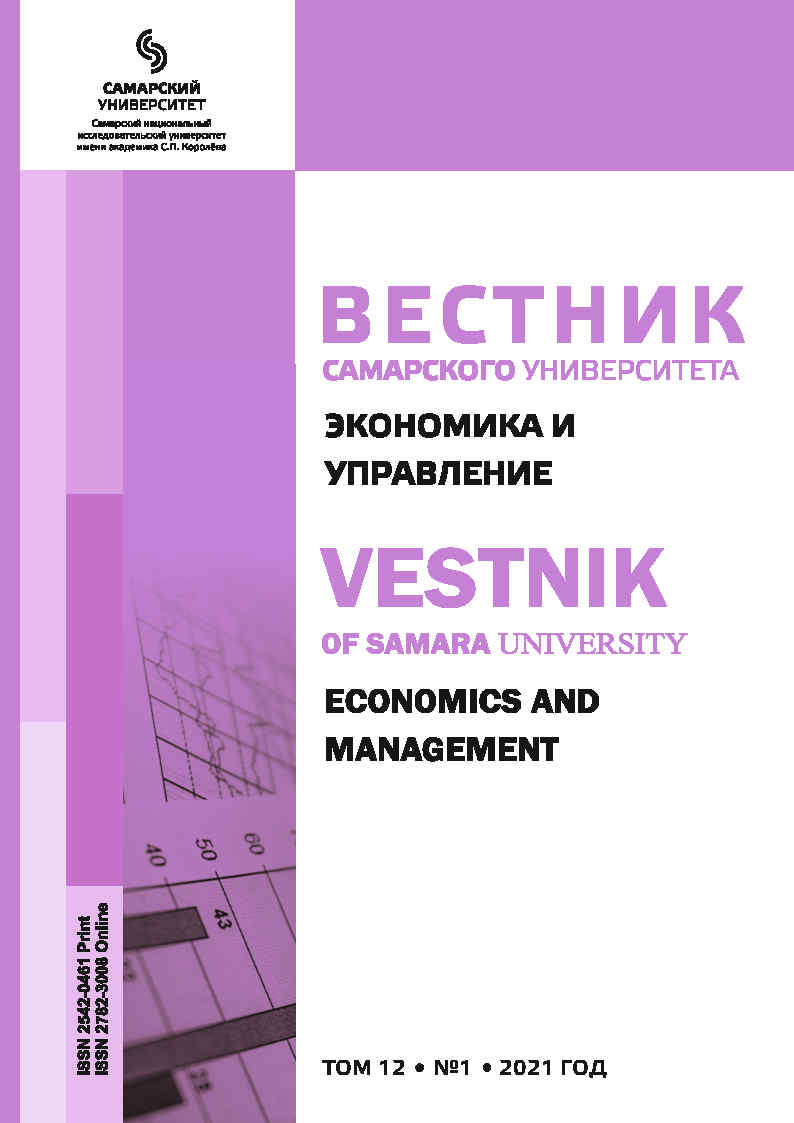Methodological aspect of assessing the military-economic efficiency of the logistics potential of a coalition group of troops on the territory of a CSTO member state
- Authors: Stulov S.V.1
-
Affiliations:
- Volsky Military Institute of Material Support
- Issue: Vol 12, No 1 (2021)
- Pages: 58-65
- Section: ECONOMICS
- URL: https://journals.ssau.ru/eco/article/view/8644
- DOI: https://doi.org/10.18287/2542-0461-2021-12-1-58-65
- ID: 8644
Cite item
Full Text
Abstract
The article considers the methodological aspect of assessing the military-economic efficiency of the logistics potential of a coalition group of troops on the territory of a CSTO member state. A system for assessing the quality of management of logistics support processes for the coalition group of troops (forces) has been developed. This assessment system corresponds to the methodological principles underlying its development (consistency, validity, objectivity, information content). At the conclusion of the authors of the article suggested methodological aspect is application of special methods of expert assessment to the construction of matrix profile highlight the level of the management hierarchy, functional areas and indicators of the level of quality control and to determine the level of quality of management of existing resources departments of logistics for coalition groups in the direction of timely and full provision of contingent troops in the territory of a state party to the CSTO.
Keywords
About the authors
Sergei V. Stulov
Volsky Military Institute of Material Support
Author for correspondence.
Email: sergei-stulov007@mail.ru
ORCID iD: 0000-0003-1701-3193
Candidate of Economic Sciences, doctoral student of full-time tenured doctoral
Russian Federation, 3, M. Gorkogo Street, Volsk, Saratov region, Russian Federation, 412903.References
- Zhavoronkova A.A. The nature and ways of economic activity planning and development in the law enforcement administration. Bulletin of the Kaliningrad Law Institute Ministry of Internal Affairs of Russia, 2009, no. 1 (17), pp. 176–179. Available at: https://elibrary.ru/item.asp?id=12295251. (In Russ.)
- Levchenko E.A., Lovchikova E.I. Regulation of socio-economic and labor relations in the regional agro-industrial complex. Vestnik of Kursk State Agricultural Academy, 2012, no. 3, pp. 22–24. Available at: https://www.elibrary.ru/item.asp?id=19397056. (In Russ.)
- Zhary M.S. The organization of logistics groupings of troops of the national guard in the course of execution tasks combat service on protection of a public order and ensuring public safety. In: Formation of the system of logistical support of the military organization of state: theory and practice: collection of materials of International research and practical conference. Perm, 2017, pp. 229–233. Available at: https://elibrary.ru/
- item.asp?id=32572197. (In Russ.)
- Zainasheva Z.G. The problems of peopleware in the personnel services sphere. Bulletin of BIST (Bashkir Institute of Social Technologies), 2011, no. 3 (11), pp. 49–55. Available at: https://www.elibrary.ru/
- item.asp?id=17421693 (In Russ.)
- Dolinko V.I. Financial-economic and logistics activities of the Russian Interior Ministry of the Interior. Vestnik of Moscow University of the Ministry of Internal Affairs of Russia, 2012, no. 6, pp. 209–213. Available at: https://www.elibrary.ru/item.asp?id=17957136. (In Russ.)
- Kozin M.N. Optimizing of selection of public procurement vendor based on the risk management methodology. Izvestiya of Saratov University. New Series. Series: Economics. Management. Law, 2013, vol. 13, no. 2, pp. 192–196. Available at: https://elibrary.ru/item.asp?id=20398533. (In Russ.)
- Kuchkin V.G. State regulation of rural social infrastructure development. Vestnik of Ulyanovsk state agricultural academy, 2009, no. 1 (8), pp. 36–39. Available at: https://www.elibrary.ru/item.asp?id=15180231. (In Russ.)
- Lyapin A.V. Identification and use of social reserves of sustainable development in the design of agricultural facilities. Vestnik of Saratov State Socio-Economic University, 2005, no. 11–1, pp. 213–215. Available at: https://elibrary.ru/item.asp?id=12911763. (In Russ.)
- Akinshin I.S. Organizational and economic mechanism of material support of internal affairs bodies. Vestnik of Moscow University of the Ministry of Internal Affairs of Russia, 2006, no. 4, pp. 121–124. Available at: https://elibrary.ru/item.asp?id=9299760. (In Russ.)
- Vetrova E.A., Pyrkov S.A., Razumovky S.L. The development of social infrastructure in the municipal districts of the region (at the example of Samara region). Tambov University Review. Series: Humanities, 2015, no. 7 (147), pp. 125–133. Available at: https://www.elibrary.ru/item.asp?id=24116215. (In Russ.)
- Kozin M.N., Malyankin V.Yu. Methodological approach to the evaluation of quantitative parameters of the stability of the military-logistic systems. Nauchnyi vestnik Vol'skogo voennogo instituta material'nogo obespecheniya: voenno-nauchnyi zhurnal, 2019, no. 1 (49), pp. 199–203. Available at: https://elibrary.ru/item.asp?id=38175119. (In Russ.)
- Khaytbaev V.A., Zaitsev A.A., Kurbanov A.Kh. Application of modern logistics technologies in the system of resource support of troops. Saint Petersburg, 2012, 199 p.
Supplementary files










